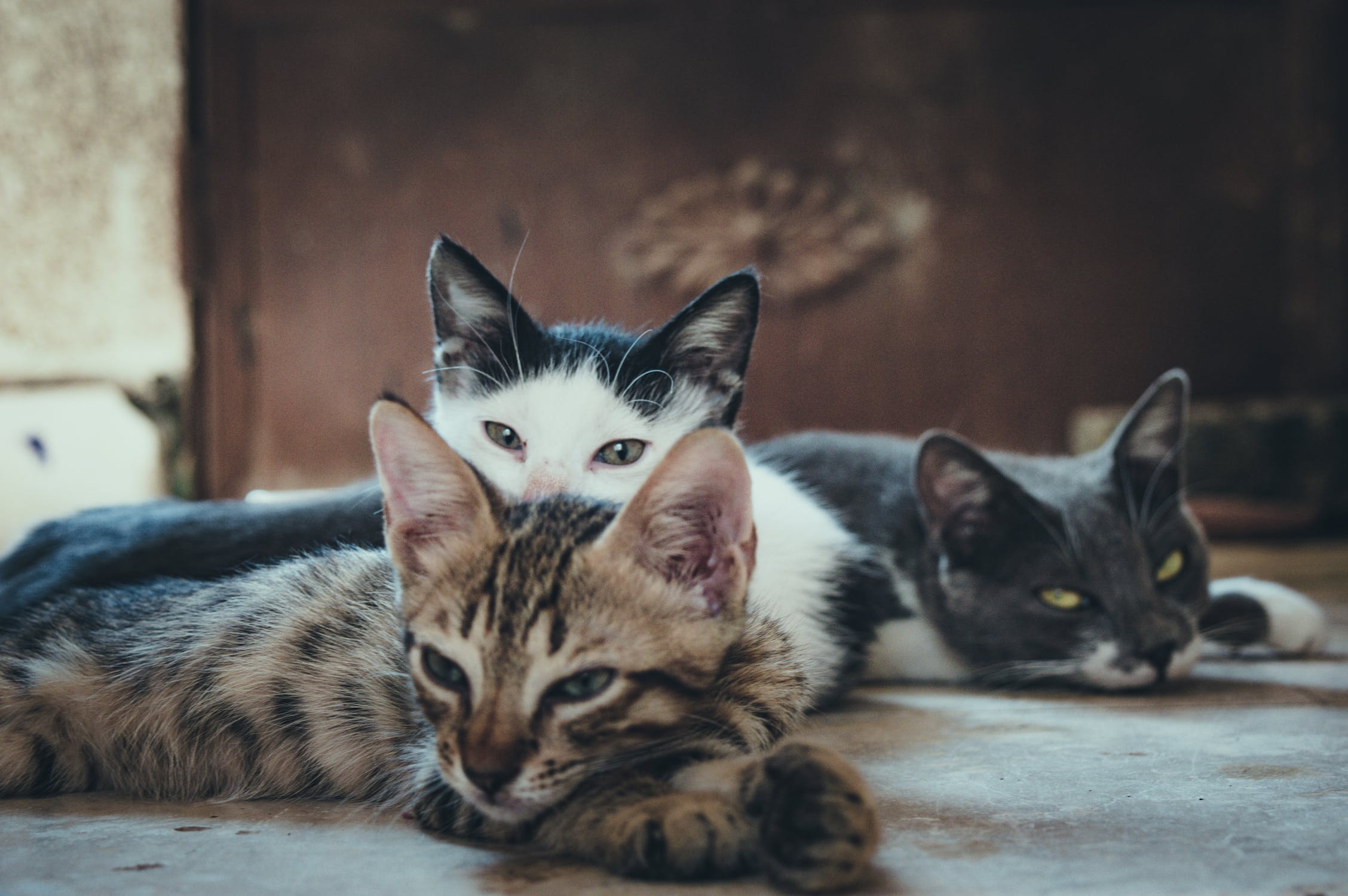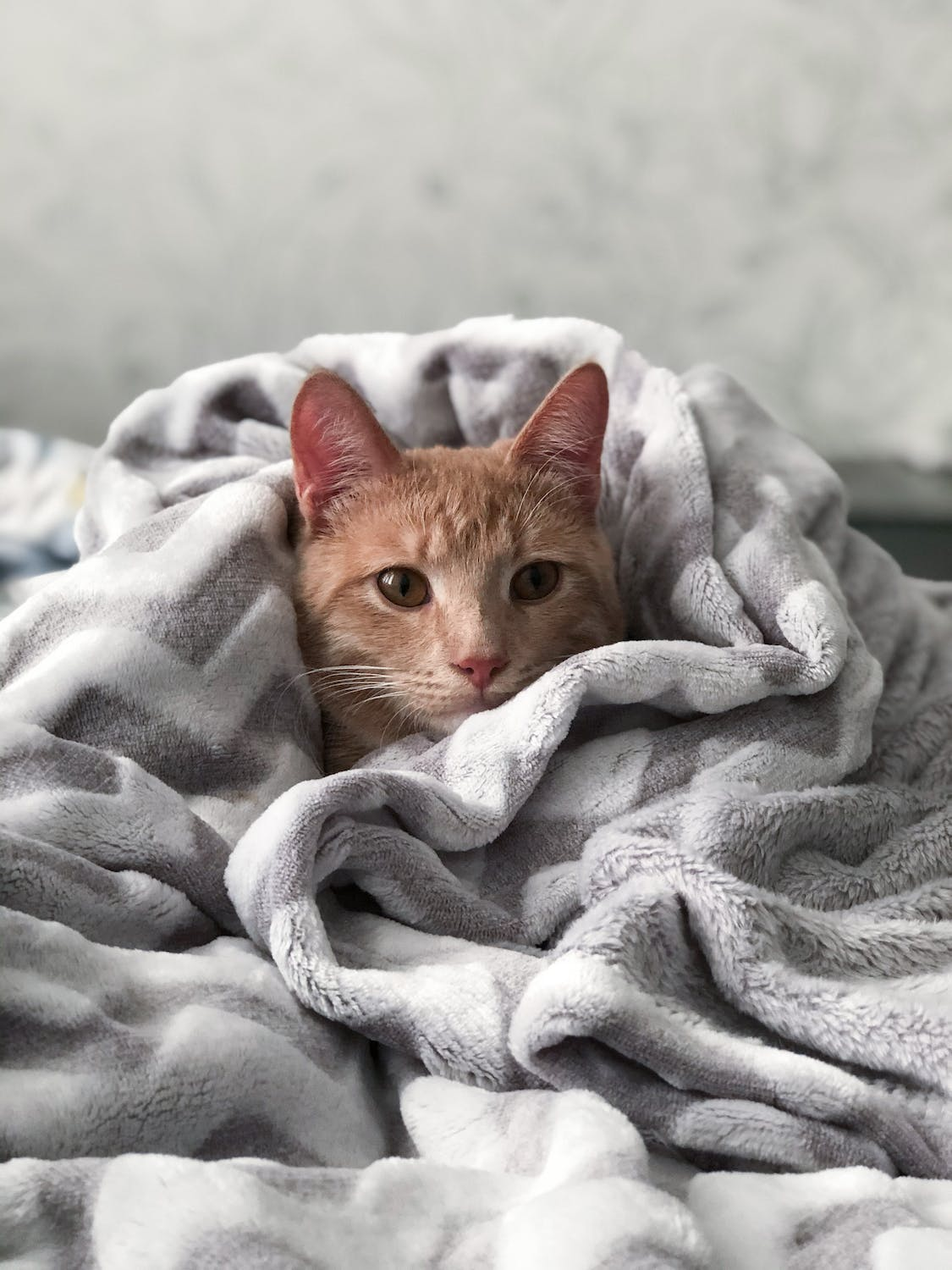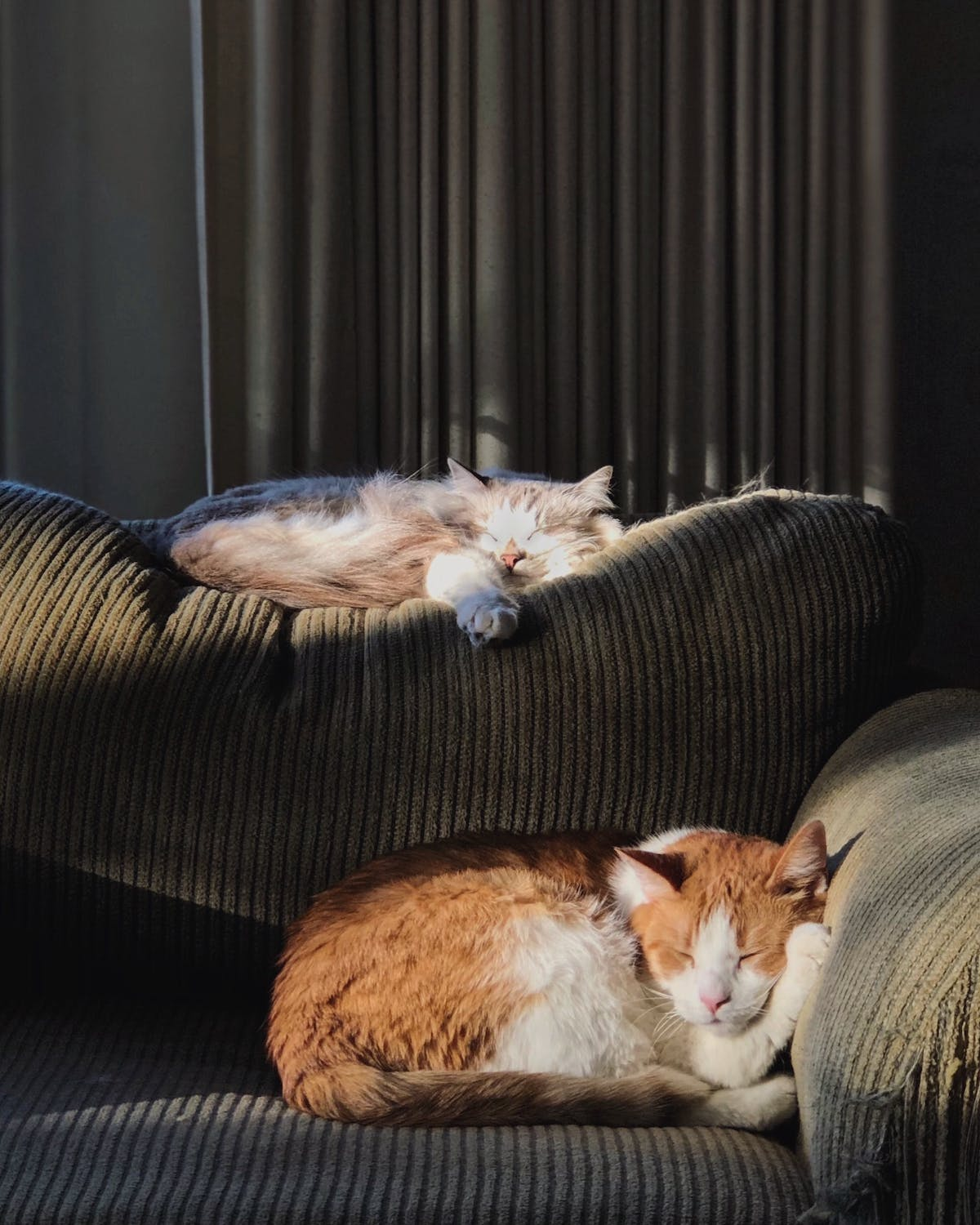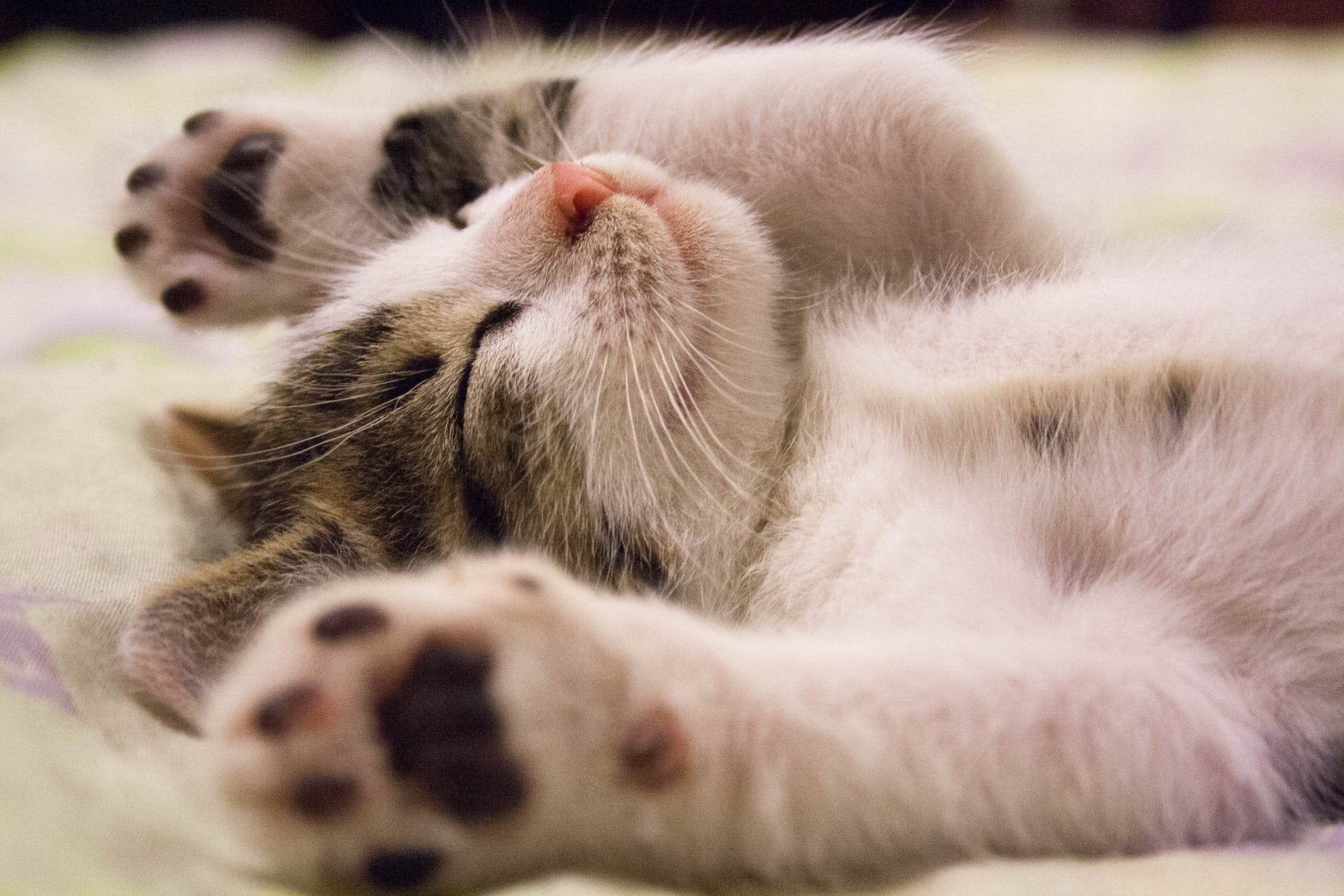As pet parents, we are always looking for ways to improve our furry companions’ health. One of the best things you can do is to take your cat for regular checkups at the vet. However, it can be difficult to know how often those visits should be. Let’s take a look at why routine vet visits are key and how often you should take your cat in for an appointment.

The Benefits of Regular Checkups
First and foremost, regular visits to the veterinary clinic provides preventative care that can help keep your cat healthy. For example, during a routine checkup, the veterinarian may catch something early on that could become serious without treatment. Early detection is key for a large amount of medical conditions.
Additionally, they will also administer vaccines and test for parasites like fleas and ticks. Vaccinations are essential because they protect your cat against diseases like rabies, feline leukemia virus (FeLV), and others. The tests will ensure that your pet isn't carrying any parasites that could potentially spread to other animals or humans in the home.
Finally, as cats age their nutritional needs change so these regular check-ups provide an opportunity to make sure their diet is still meeting their needs.

So, How Often Do You Take A Cat To The Vet?
While cats may seem to be self-sufficient, taking them to the vet regularly is still essential for their health. Very often people assume that cats don't need as much medical attention as dogs; however this couldn't be further from the truth!
You should plan on taking your feline friend in at least once a year for an annual checkup- and if there is any doubt or unusual behaviour they show, even more frequently doesn’t hurt either. Don’t forget: catch problems early with proactive visits!
If there are any concerns about a particular condition or illness that requires more frequent visits then those should be discussed with the veterinarian at each visit so a plan can be put into place if needed.
Young Kittens
Most kittens require special care and attention to stay healthy, including regular vet visits. Depending on their age, a kitten should go to the vet for a check-up at least once every 4 to 6 weeks during their first 6 months of life.
Vaccinations are also important for kittens, and scheduling should be discussed with the vet based on a kitten's lifestyle and health history. Regular check-ups will allow the vet to monitor the development of the kitten physically and behaviorally. These visits are a great opportunity for owners to ask questions about caring for their pet and make sure they're on track for a long and happy life together.
Adult Cats
Regular vet checkups for an adult cat are important, even though cats hide illness more easily than dogs. Health problems can sneak up on even the most doting cat parents. It's recommended that adult cats have a “wellness” exam at least once every year. This gives your vet a base to evaluate from during subsequent years and track your cat’s health changes over time.
A regular veterinary visit can also give your veterinarian the chance to examine other potential health issues such as heart and dental disease, parasites and malnutrition that could otherwise go undetected by the untrained eye. Making sure to schedule routine office visits helps ensure that any underlying or silent threats to your cat’s health are identified early so they can be addressed accordingly by both you and your veterinary team.
Senior Cats
It is important for senior cats to receive regular check-ups at the vet, as they are particularly vulnerable to certain medical conditions and illnesses. Generally speaking, senior cats should be taken in for a vet visit every six months. This depends on their overall condition and health, however, so talk to a vet if your cat appears ill or has any new behavioral issues.
Regular vet visits help ensure that senior kitties get the special care they require and protect them against disease and illness. With preventative care, these beautiful cats can enjoy a long and healthy life well into their golden years.

Underlying Health Issues Cat Owners Should Be Aware Of
Pet ownership carries a great deal of responsibility, and one way to make sure pet owners are doing their best to ensure the health of their furry friend is to be aware of potential underlying health concerns. As with humans, certain diseases can go unnoticed unless pet owners make sure to get regular blood work done for their pet.
Knowing about a pet's overall health status is essential; being aware of any potential medical issues can allow pet owners to take measures to prevent or address any existing or latent conditions before they grow in severity or become life-threatening. Taking your feline friend to the vet's office regularly is the best way to keep your pet in good health.
Cancer
Cancer is an insidious affliction that lurks in the shadows, striking both humans and animals alike with its chaotic spread of uncontrolled cell growth. It can appear as localized tumors or ravage through a body like wildfire, leaving no organ untouched. Whatever form it takes, cancer's unpredictability makes it one formidable enemy to combat.
Diabetes Mellitus
Diabetes can be a complex and dangerous illness for cats. It is caused when their bodies either lack the hormone insulin or are unable to process it correctly, leading to increased levels of glucose in their bloodstream. Without swift treatment, this hyperglycemia causes many issues that put feline health at risk - so even if your cat doesn't show signs right away, making sure they have their yearly physical examination can save your cat's life!
Feline Immunodeficiency Virus (FIV)
Even though FIV in cats can remain dormant for years, once the virus takes hold it poses a serious threat to their health. Without proper supportive medical care and an indoor environment free from stressors, these felines may suffer from secondary infections that can make life difficult as the disease enters its chronic stages. Fortunately, with attention and support affected cats have been known to lead comfortable lives for months or even years after initial infection!
Feline Leukemia Virus (FelV)
Feline leukemia virus was first discovered in the 1960s, and since then it has been one of the most prevalent causes of illness and death amongst cats. An insidious retrovirus that can be transferred between animals, FeLV severely impedes a cat's ability to fight off infection— making diagnosing this condition paramount for both new arrivals into households as well as any sickly cats. Testing is critical to catching early signs before symptoms worsen!
Feline Dental Disease
Veterinarians are all too familiar with a common affliction in cats - dental disease. Over half of felines over the age 3 suffer from it, whether that be gingivitis, periodontal disorder or tooth resorption – an uncomfortable condition known to cause distress and discomfort for our feline companions. A cat's teeth is very important, so make sure if you cat is showing signs of dental disease, you take them to see the vet for regular dental cleanings.
Weight Loss
Weight loss in cats is an indicator of an underlying health problem and should not be taken lightly. A cat losing weight may be suffering from a number of medical conditions, including parasites, asthma, diabetes, kidney disease and cancer. While some weight loss can be a result of aging or other age-related issues, it’s best to have your cat diagnosed by a veterinarian for a full assessment and recommend treatment if needed. If the cause is a medical condition, proper diagnosis and treatment are essential for you to help improve your cat’s quality of life. Proper nutrition is also key to maintaining optimal health in cats so pay attention to what they eat and make sure they get plenty of exercise whenever possible.

Vaccination Schedule For Perfect Health Of Your Feline Friend
In the first 6 to 8 weeks of a kitten's life, you should start with the feline leukemia vaccine (FeLV) and the FVRCP vaccine. The FVRCP vaccine will help protect against feline calicivirus, feline viral rhinotracheitis, and feline panleukopenia.
At about 12 weeks, your kitten should start to receive rabies vaccines.
After you've finished the series of vaccines in the first year, vaccine boosters will take place once a year or every 3 years depending on the vaccine itself.
It's also important to remember that there are other vaccines available to you and your pet that may be recommended by your vet.
General Guidelines To Cat Vaccines
-
6-8 weeks
-
FVRCP required
-
FeLV highly recommended
-
-
10-12 weeks
-
FVRCP required (second in series)
-
FeLV highly recommended
-
-
14-16 weeks
-
FVRCP required (third in series)
-
Rabies required by law
-
FeLV highly recommended
-
-
1-year booster
-
FVRCP booster required
-
Rabies booster required by law
-

Conclusion
Regular vet visits can help keep your pet healthy and happy by detecting potential issues early on and providing preventative care such as vaccines or parasite control measures. Kittens need more frequent visits up until 6 months of age but after that typically annual checkups will suffice unless otherwise advised by a veterinarian based on your pet's specific health history or underlying conditions/illnesses. Taking time out of our busy schedules for these appointments is key in ensuring long-term physical health and mental well-being of our beloved cats!
Check Out Print Our Pet!
If you are hooked on cats, look no further than Print Our Pet for all of your favorite feline needs! They have custom blankets specially designed with your unique cat just for cuddling up in front of the fire. Need a mug to show off your love for your cat? Print Our Pet has that covered too - with adorable mugs featuring stylistic portraits of your kitties. Want even more? How about some custom stickers or a custom pet portrait? You name it, they’ve got it - all exactly designed to fit your cat-loving lifestyle. Don't wait any longer to check out Print Our Pet and give your home the purrfect touch.


